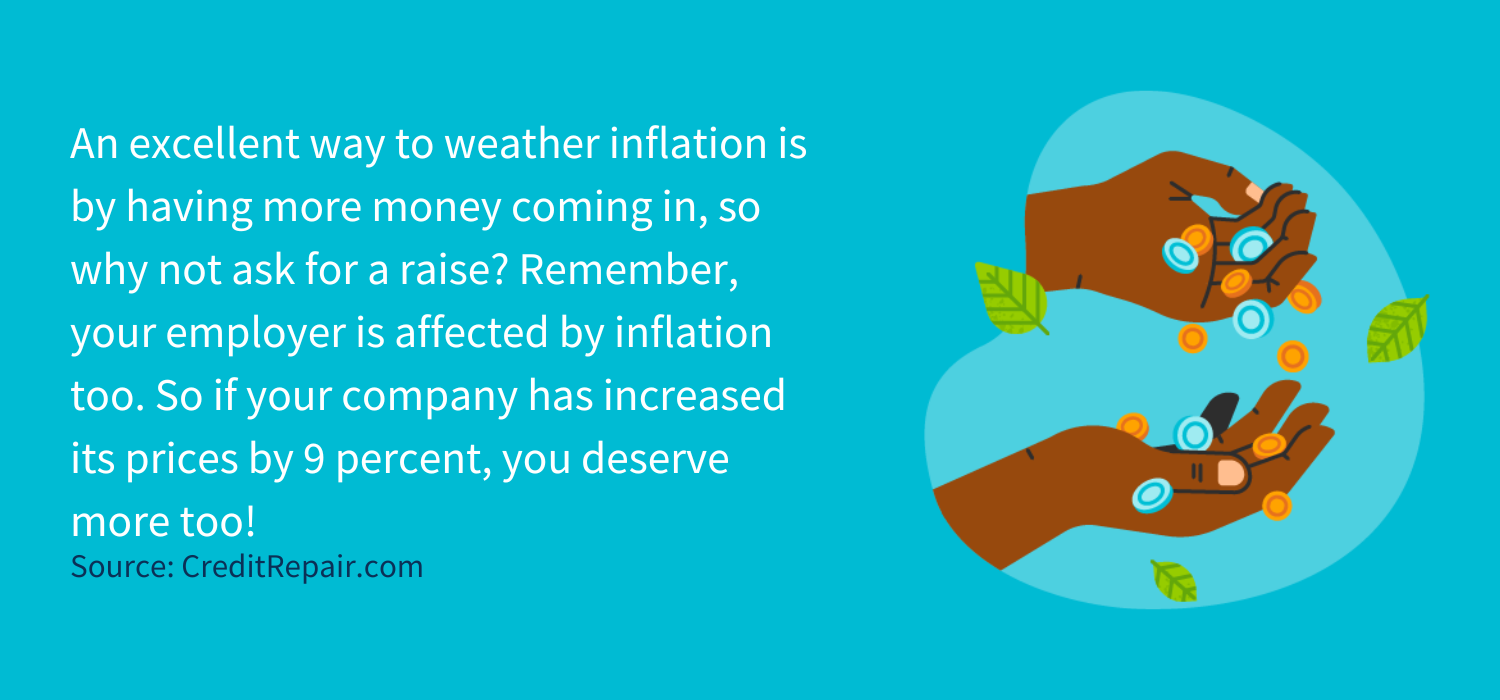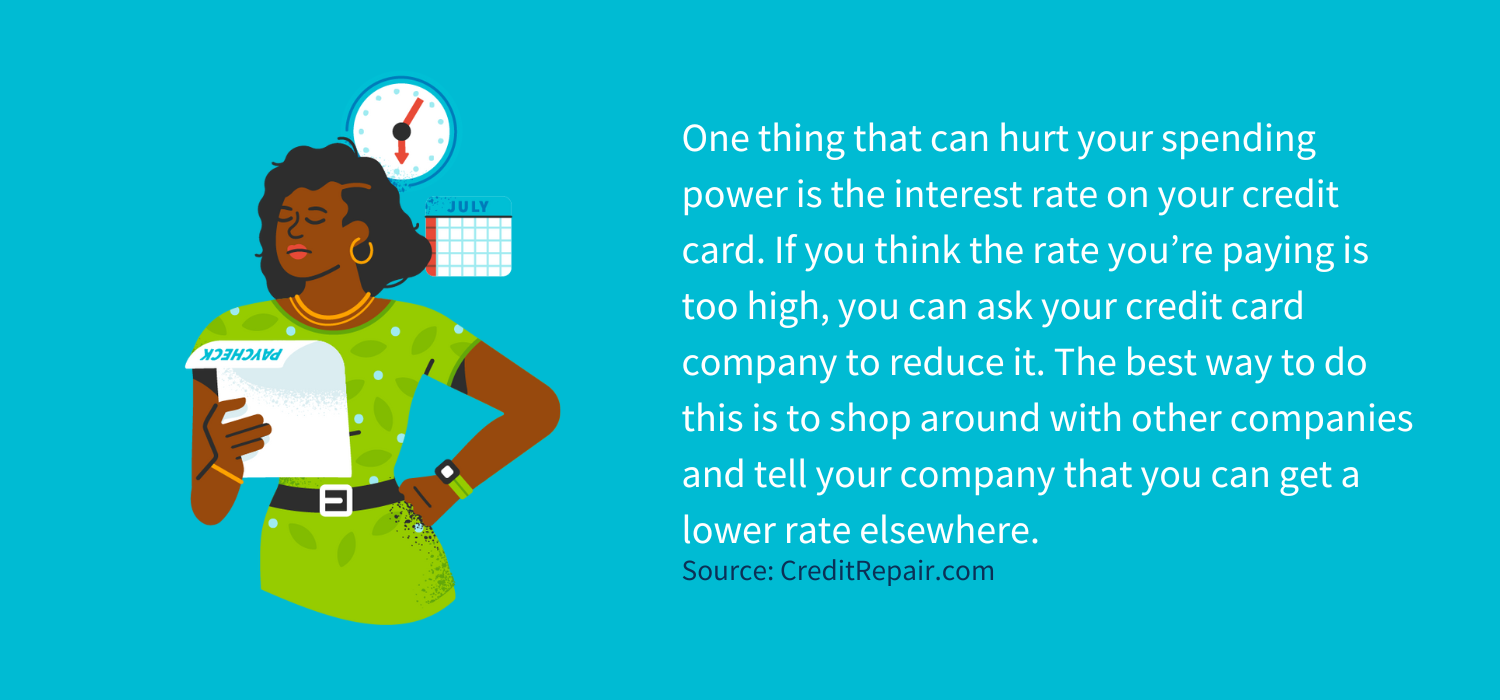
Disclosure regarding our editorial content standards.
It seems like every time you turn on the news, something else is going up in price. Unfortunately, nothing seems immune to relentless price rises, whether it’s gasoline, energy bills, food or luxury items.
But what’s behind all these price increases, and are there ways to beat inflation? We’ve looked into the issue and come up with a few tips for weathering inflation.
What is inflation, and how is it affecting you?
Inflation is the rise in prices over time, usually measured using a “basket” of everyday goods and comparing their price from one year to the next. The inflation rate is the percentage increase in the cost of the entire basket. According to Statista, the inflation rate in June 2022 was 9.1 percent, meaning everything you buy is increasing in price at a fairly rapid pace.
If your salary isn’t keeping pace with inflation, it can make life pretty tricky, especially if you were paid a low wage to begin with. If there was any room for treats and luxuries in your budget, you’re probably having to cut back on those now.
Fortunately, there’s light at the end of the tunnel. Experts at Morningstar are predicting that inflation has now peaked and will fall back to reasonable levels in 2023.
But what to do in the meantime? Well, here are 10 of the top ways we believe you can weather inflation.
10 tips on how to weather inflation
1. Celebrate a “financial wealth day”
The first thing to do is take a deep breath. Acting to improve your finances is not something you need to do in a rush. So take a day to analyze your finances. If you have a budget prepared, take it out and see if there are any savings to be made. If you haven’t got a budget, it’s time to prepare one.
Getting your regular bills on the budget shouldn’t be too hard, but make sure you have your latest utility statements for accuracy. If you’re unsure how much you spend on something, dig out your bank statements.
A helpful budget needs to be as accurate as possible, so make sure everything’s included. Then, when you’re done, you should hopefully be able to identify some potential savings.
2. Cut down on the extras
We all have a few little things we spend money on that aren’t really essential. And with inflation eating up your cash, this is the perfect area to make savings. For example, do you really need all those streaming subscriptions?
It’s important to remember at this point not to cut out everything you enjoy. Instead, identify the things you can really live without and cut those first. Then, work with your budget and see how much you can afford, but also leave some room, as prices may continue to rise.
3. Ask for a raise

An excellent way to weather inflation is by having more money coming in, so why not ask for a raise? Remember, your employer is affected by inflation too. But this usually means they’re also raising their prices and boosting their profits. So if your company has increased its prices by 9 percent, you deserve more too!
If your productivity and performance are above average, remind your employer of that. If your skills are in short supply, use that to your advantage as well. The recent “Great Resignation” isn’t over yet. It’s put a lot of skills in high demand, and companies don’t want to lose valuable employees. But remember, watch out for lifestyle creep once you get that raise.
4. Save a new car for later
You might have been looking at your car and thinking it’s getting old, so it’s time to get a new one. Well, now is not a good time to spend that kind of money. Unless your car is about to break down for good or costs you a fortune in maintenance and repairs, it’s better to save your money.
Why? Cars are subject to inflation like everything else. However, at the moment, this is mainly due to supply chain issues and skill shortages, which are expected to be resolved later in 2022. This should lead to a drop in prices for used and new cars in 2023.
5. Avoid animal-based foods
The truth is that meat is expensive. This is primarily because meat takes much more energy to produce than plants and uses more land and water. For example, it requires 0.43 kWh of energy to produce 1 pound of corn, while the same weight of beef requires 31.5 kWh. Even cheese is pretty energy intensive compared to plant-based foods.
So substituting lentils and tofu for your beef and chicken won’t just make you healthier; it’ll also be easier on your pocket.
6. Get and use a rewards credit card
You might think that using a credit card when times are tough is not the best idea, as you’re storing more problems up for later. However, there are ways of using a credit card that can be helpful. For example, many credit cards now offer point systems that give you cash back, discounts on products or credit towards things like air travel, food delivery services and gas purchases.
But it’s best to be careful before embarking on a credit card spending spree to grab those rewards. Check the eligibility terms for your rewards before signing up for a credit card, and make sure the interest doesn’t eat up any benefits. If you can pay the card off in full each month and still get your rewards, that’s the best way to proceed.
7. Call your credit card company and ask for a lower interest rate

One thing that can hurt your spending power is the interest rate on your credit card. If you think the rate you’re paying is too high, you can ask your credit card company to reduce it. The best way to do this is to shop around with other companies and tell your company that you can get a lower rate elsewhere. If they say no, you can always look at transferring your balance to a new lender.
However, you should remember that an inquiry to lower your rate might affect your credit rating, as the company may need to do a credit check to see if you qualify for the lower rate.
8. Look for extra work
If you’re really struggling and have a bit of spare time, it might pay to find extra work. First, make sure your main employer doesn’t have clauses in your contract forbidding this. There are a few jobs where part-time workers are needed outside regular office hours that you could do. These include:
- Bar work
- Waiting tables
- Teaching gym classes
- Courier work
- Taxi driving
If you have the skills and time to fit one of these, it could give your income a welcome boost.
9. Put some money into an emergency fund, if possible
It’s always good to put some money aside, so if you have extra income from following the other points in this post, you should start an emergency fund. As inflation keeps rising, you may find your extra income is being squeezed further and you need to dip into savings.
However, you also should remember that your savings are losing value as the price of things goes up. Therefore, don’t put too much away. Enough to cover six months of your basic expenses should be sufficient.
10. Look at your credit report and dispute any inaccuracies
A poor credit rating could prevent you from accessing better credit that could reduce your interest payments on outstanding debts. So it’s a good idea to make sure your credit report is accurate. You can access your credit report for free through AnnualCreditReport.com, which will give you a complete breakdown of your credit history.
Once you’ve received and checked your report, you can dispute any inaccuracies. For information on how to do this, take a look at our article on how to dispute a credit report. And remember, that the credit advisors at CreditRepair.com are always happy to help you if you need some extra guidance.
Note: The information provided on CreditRepair.com does not, and is not intended to, act as legal, financial or credit advice; instead, it is for general informational purposes only.
Questions about credit repair?
Chat with an expert: 1-800-255-0263






